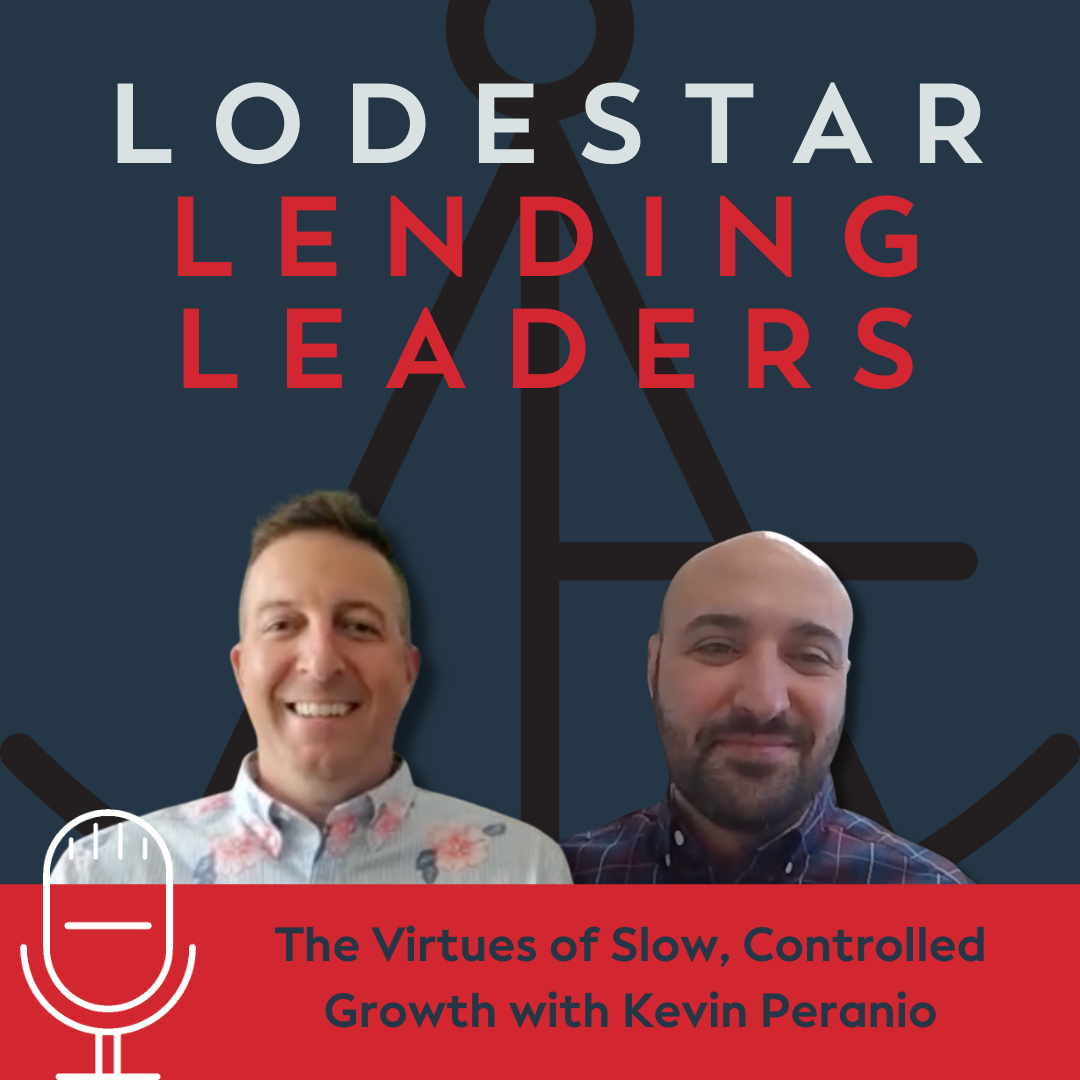

LLL recently had the pleasure of sitting down with Kevin Peranio, Chief Lending Officer at PRMG, Inc. Kevin has been in the industry for a long time and is no stranger to rises in falls in volume. He shared some of his wisdom about how to endure in changing markets, and how to build a business designed for the long haul.
Staying positive despite rises and falls in volume and grim industry projections
Kevin is a big advocate of building a business to weather rising and falling numbers. Just because you’re doing less volume, doesn’t mean the dollar amount can’t be good per deal.
Kevin projects January will be the low point of the year, but the coming six months are only going to get stronger. It’s a good time for locally rooted, community-serving businesses to keep on keeping on. Businesses rooted in community aren’t as threatened by industry ups and downs, because they’re interested in other things than maximizing profit. Instead, it’s about maximizing community service.
We’re still looking at a good market in a fundamentally strong economy. Typically, mortgage companies build capacity based on a certain standard, the market slows down, and a price war ensues. Is that what you see in the mortgage industry as a whole?
Kevin reiterates that small, privately held companies aren’t beholden to stock market, or recent trends. There’s no need for mass layoffs because we can hold our ground; and, again, we didn’t hire recklessly to maximize profit. Strong, local businesses are designed to endure market trends. They don’t hire just to fire. They would rather do less volume, so they don’t have to fire in the future. Perhaps the coolest thing Kevin told us about his own business philosophy was, “We’re ok with slow, controlled growth.”
How to Weather Seasonality
It certainly won’t surprise you to hear that Kevin insists the goal is to focus on coopertition, not competition. Help others in the space and view the industry as a collaborative space where businesses serve communities together. Cultivate an abundance mindset.
PRMG just won its 4th award as a great workplace. What are you doing to have workplace that employers want to stay in?
Kevin cites two things that that are essential to his company’s culture. One is an atmosphere of respect and mutual positive regard. Another is a decentralized model that embraces technology and remote work. The company isn’t based in one place where all the action must be. Regional employees can make their own decisions knowing their managers trust them.
Kevin left us with a wonderful thought he heard at an industry conference: A lot of people look at their failures and try to invert them. That doesn’t always work. Study excellence and incorporate that. That’s how you’ll improve.

